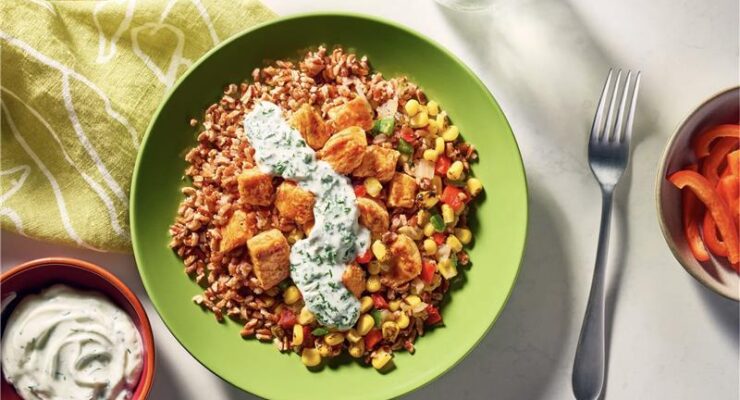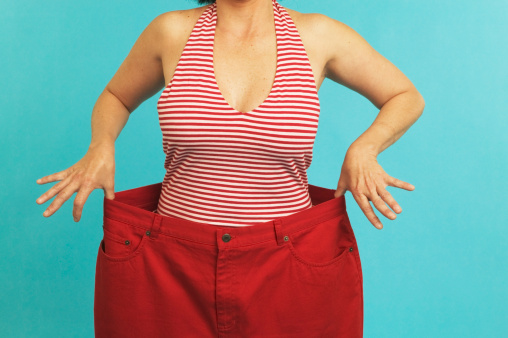The Shocking Reason You May Weigh More Than Your Friends
Article posted in: Lifestyle
Is your personality making you fat?
Research has found that people with certain personality traits are more likely to be overweight, are at higher risk than others of gaining weight as they age, and have trouble losing or keeping weight off. Conversely, some personality traits are linked with being and staying lean.
Personality traits, like habits, aren’t easy to change, but it is possible to alter the behaviors that may be standing in the way of your weight loss goals.
Here are some of the traits that scientific research identified as obstacles to weight loss—and some positive steps you can take to make lasting change:
Your moods are black or blue.
You have more valleys than peaks. You frequently feel depressed, anxious, hostile, angry or negative. Science refers to this collection of dark traits as “neuroticism,” and it could be the reason you weigh more than you should. Neuroticism has been linked in many studies to obesity and an inability to lose weight. Neurotic people, for example, are more likely to eat to tamp down their negative feelings.
What you can do:
Psychological counseling, medications and exercise are often prescribed to beat a negative mindset, particularly one that’s lingering or recurrent. Sometimes, it’s as easy as looking on the bright side on a regular basis. Neuropsychologist Rick Hansen, PhD, in his book, Hardwiring Happiness, points out that our brains are hardwired to look for the negative in our environment. It’s how we spot danger and survive. To focus on the positive, we need to do it mindfully. One way he suggests is to keep a gratitude or happiness diary. Every day or several days a week, write down something you’ve experienced that made you happy or something you’re grateful for. It could be anything from a beautiful sunset to the warm smile of a friend. Doing this over a period of time, studies show, will help your brain learn to find the good even on the darkest days.
You can’t resist temptation.
You know you shouldn’t finish the entire plate of fries, but they’re sooo good, you can’t stop yourself… even though you’re not the least bit hungry. You say you’re not having dessert, but the sight of a rich dark brownie on the dessert tray trashes your best intentions. Your favorite cooking show always sends you to the fridge at commercial break. You’re impulsive and, according to 50-year National Institute of Aging study, it’s the number one personality risk factor for obesity. You may also be heeding the siren call of your brain’s reward system. In a 2013 study on fruit flies done by researchers at the University of Georgia, even insects get excited about food—even just the smell of food—and are likely to binge.
What you can do:
Make a list of your biggest temptations and brainstorm ways to avoid them. For example, if you can’t resist the fries that come with your sandwich, ask to substitute a small salad so you won’t feel tempted. If sweets are your downfall, choose a “safe” Nutrisystem treat, keep other desserts out of the house, and excuse yourself from the table when the dessert tray is heading your way. Studies at the Cornell Food & Brand Lab have found that eating with even one other person makes you eat 76 percent more than when you’re alone (overeating is contagious, particularly if you’re someone who has trouble saying no to yourself). That’s the time to be vigilant. Avoid alcohol, which can make you even more impulsive and leads you to eat more. Move food, like the breadbasket, as far from you as possible (in a restaurant, ask the waiter to take it). At family get-togethers, dish out the food to everyone so you’re not stuck with the overly generous mountain of food your mom is likely to serve you—and that you’re sure to eat.
You can’t stick to anything for long.
The luckiest people in the world, when it comes to weight, are those who are conscientious. These are the folks who, when they have a project, always see it through to the end with the intent to do it well. They’re thorough, careful and vigilant. They also tend to be slimmer than people who are less disciplined, and their weight doesn’t fluctuate much as they age, according to the 2013 National Institute of Aging study.
What you can do:
If it doesn’t come naturally, conscientiousness is going to take a little more work, but you have plenty of help. The Nutrisystem app was made just for you. It allows you to easily keep track of everything you eat and all of your activity. You can’t be disorganized and lose sight of where you are when it’s that easy. Use reminders—whether it’s Post-it notes, a small notebook, tablet or your smartphone—to prompt you to do what you need to do. Schedule your gym or walking sessions. Make daily schedules and keep to them. De-clutter your work area or just the kitchen junk drawer. A study at the University of California at Los Angeles found that the more stuff you have, the higher your level of cortisol, the stress hormone. Getting rid of clutter can help relieve your stress and make you feel accomplished. It’s such a good feeling, you’re going to want to keep at it.













